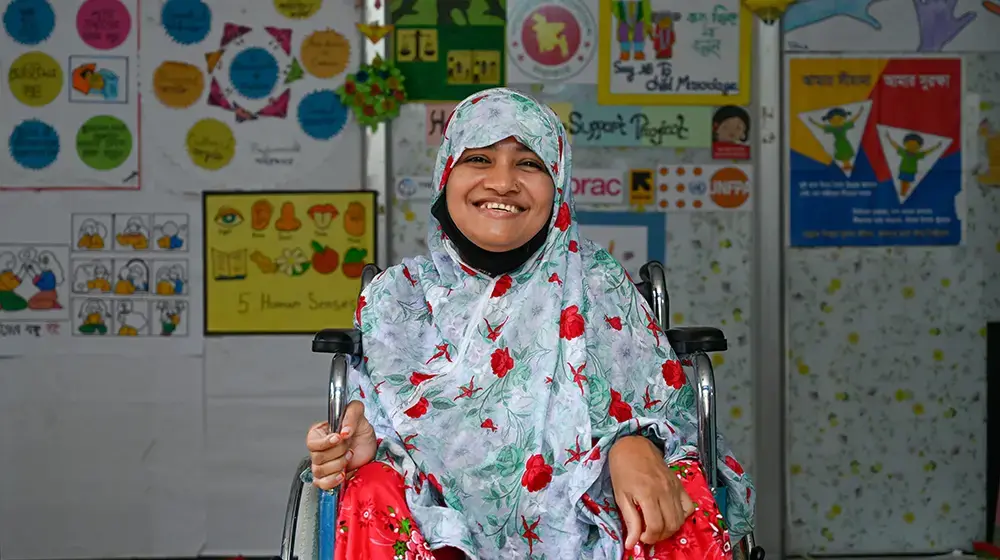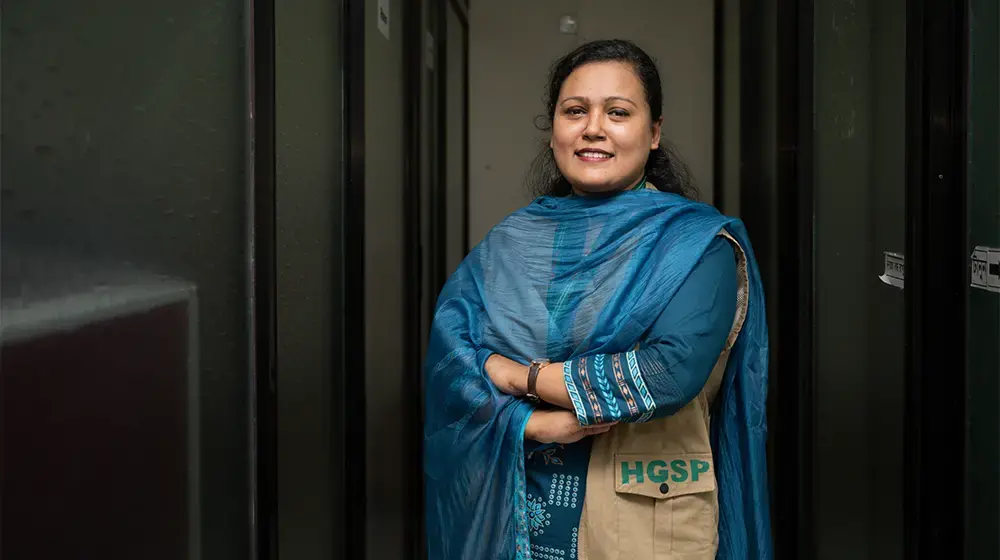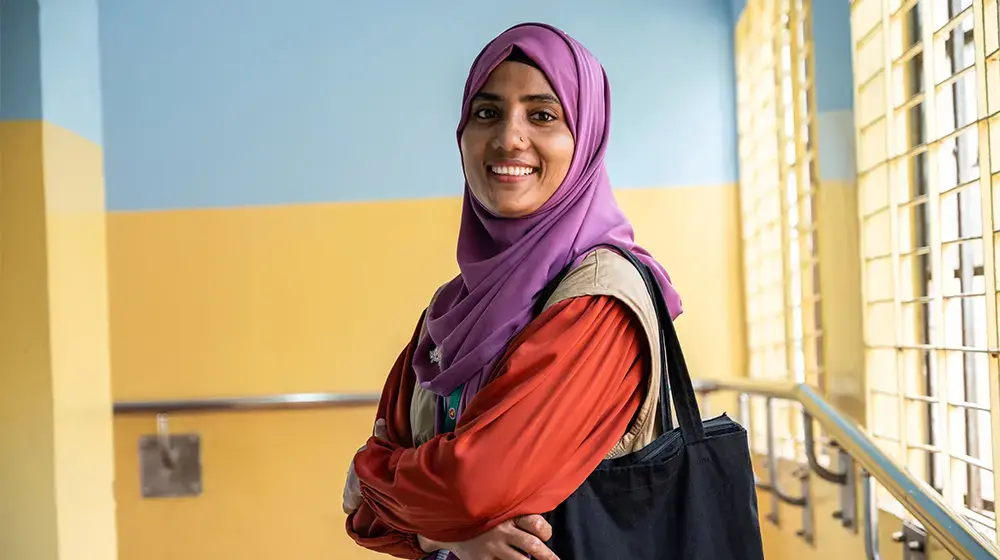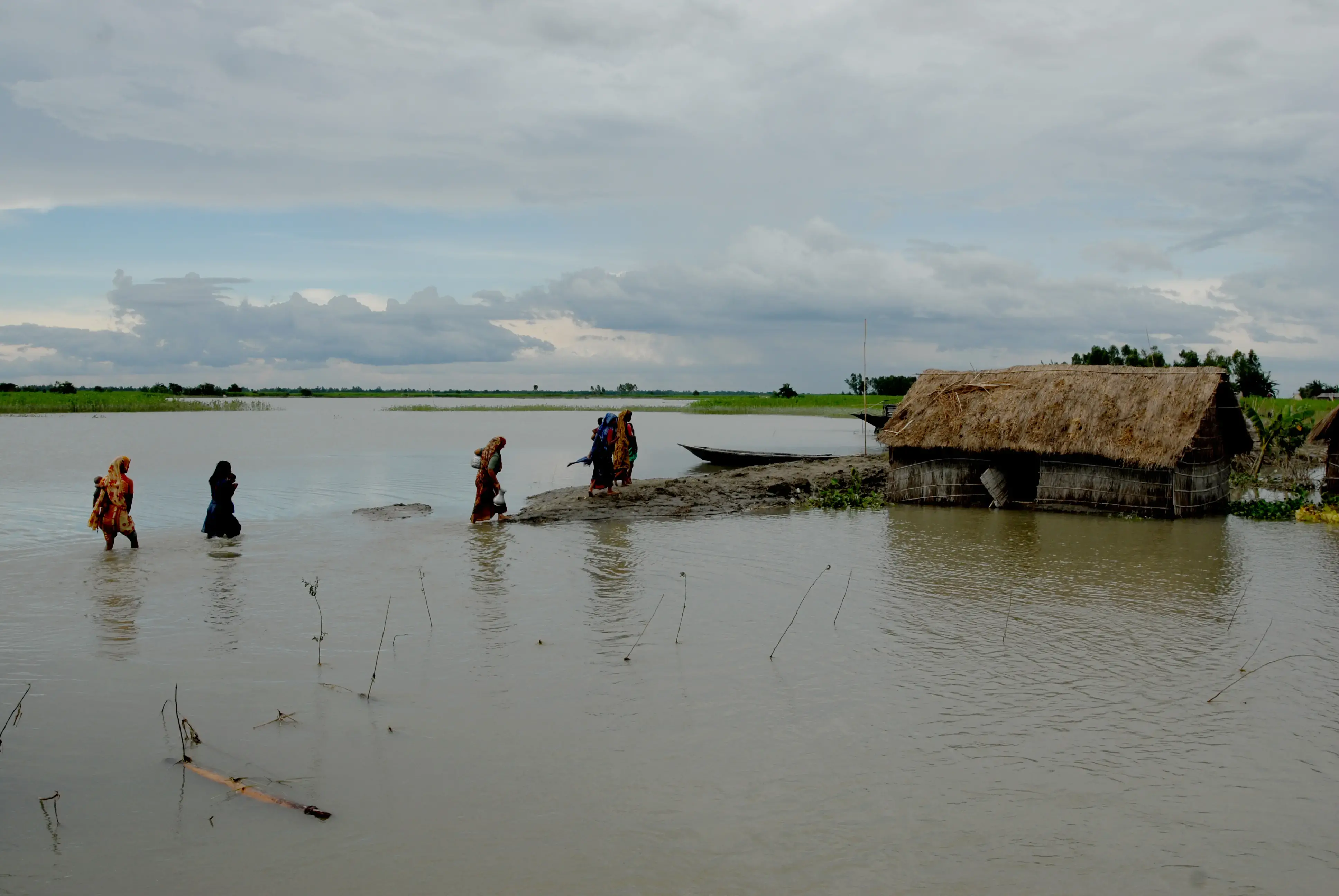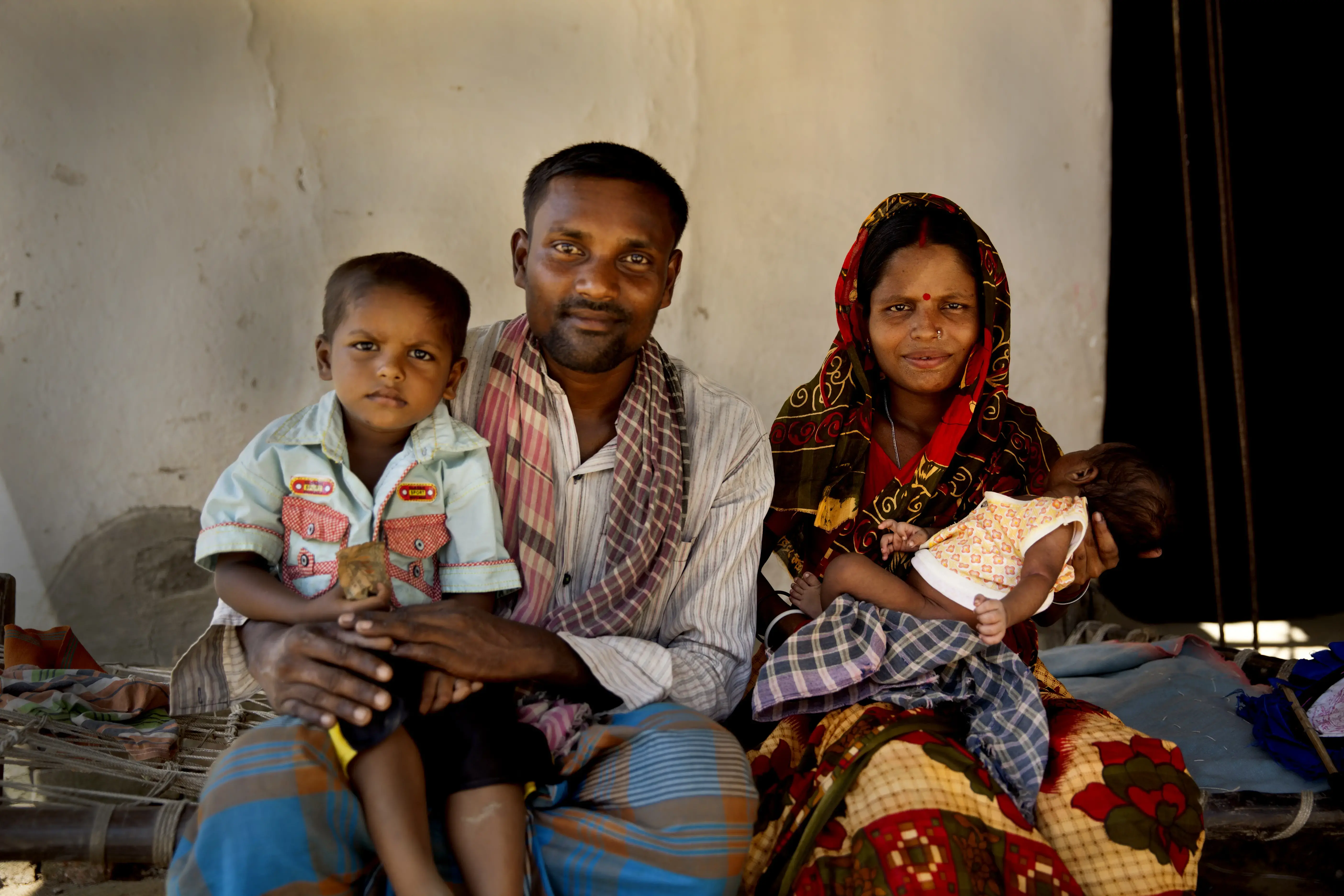In Bangladesh, gender-based violence (GBV) constitutes a grim but everyday reality. According to the UNFPA-supported 2015 VAW survey, almost 73% of ever-married women experience one or more such forms of violence by their husbands at least once in their lifetime, with 55% reporting violence during the last 12 months. Globally, Bangladesh ranks fourth in intimate partner violence (IPV) and outranks all the other South Asian countries in child marriage and adolescent pregnancy rates. Research shows that actual or perceived fear of GBV is one of the factors driving child marriage, whereas each step up the educational ladder significantly reduces child marriage and decreases the likelihood of violence against women and girls in Bangladesh.
UNFPA is therefore working together with national and subnational partners to achieve gender-equitable social norms, an enabling non-discriminatory legal and policy environment, and strengthened systems to prevent and respond to gender-based violence and other harmful practices in both the development and humanitarian settings.
To this end, UNFPA’s interventions include :
1. Response:
-Implement integrated SRHR and GBV response services
-Building capacity of NGO Service Providers on Survivor Center GBV Case Management Approach.
-Promoting a centered Approach through the Police Help Desk.
-Disability inclusion GBViE programme and capacity building of Organization of Person with Disabilities (OPD)
-Referral pathway
-Health sector response to GBV
-Set up and operationalise One Stop Crisis Center (OCC)
2. Prevention and Risk Mitigation:
-Roll out of SBCC plan and tools following RESPECT Framework.
-Life skills (soft skills including safe Internet use, cyber violence).
-Capacity building of local government (elected chairman/ members).
-Advocacy and Capacity building of the public transport sector.
-Distribution of Dignity Kits among disaster affected women.
-Technical Support to Women-Led Organizations (WLO) on Gender Transformative Prevention programming.
3. Enabling Environment:
-Identify GBV laws with discriminatory provisions and undertake advocacy (jointly with UN sister agencies).
-Implementation of UPR and CEDAW recommendations.
-Capacity building of service providers on legal and policy frameworks, protocol.
-Working with parliamentarians, especially on the amendment of the Domestic Violence Law and its rules.
-Enactment of a new Sexual Harassment protection and prevention law jointly with other UN agencies through Strategic Pillar 5 on Gender Equality and Women Empowerments of UNSDCF.
-Support to strengthen national coordination mechanism to implement National Action Plan on Violence Against Women ( NAP-VAW).
4. Data and Evidence Generation:
-Supporting Bangladesh Bureau of Statistics ( BBS) to conduct the survey to make the Violence Against Women ( VAW) prevalence data available in the country.
-Sectoral administrative data collection and reporting ( GO-NGO).
-Support the development of a national data management system.
-Support the development of national guidelines/SOPs for addressing harmful norms.
-Exploratory studies on emerging issues ( GBSS/climate-induced GBV, TFGBV).
-ESP costing (piloted).
-Formative Research ( SBCC on Son preference).
-Meta-analysis of available MHPSS services.


